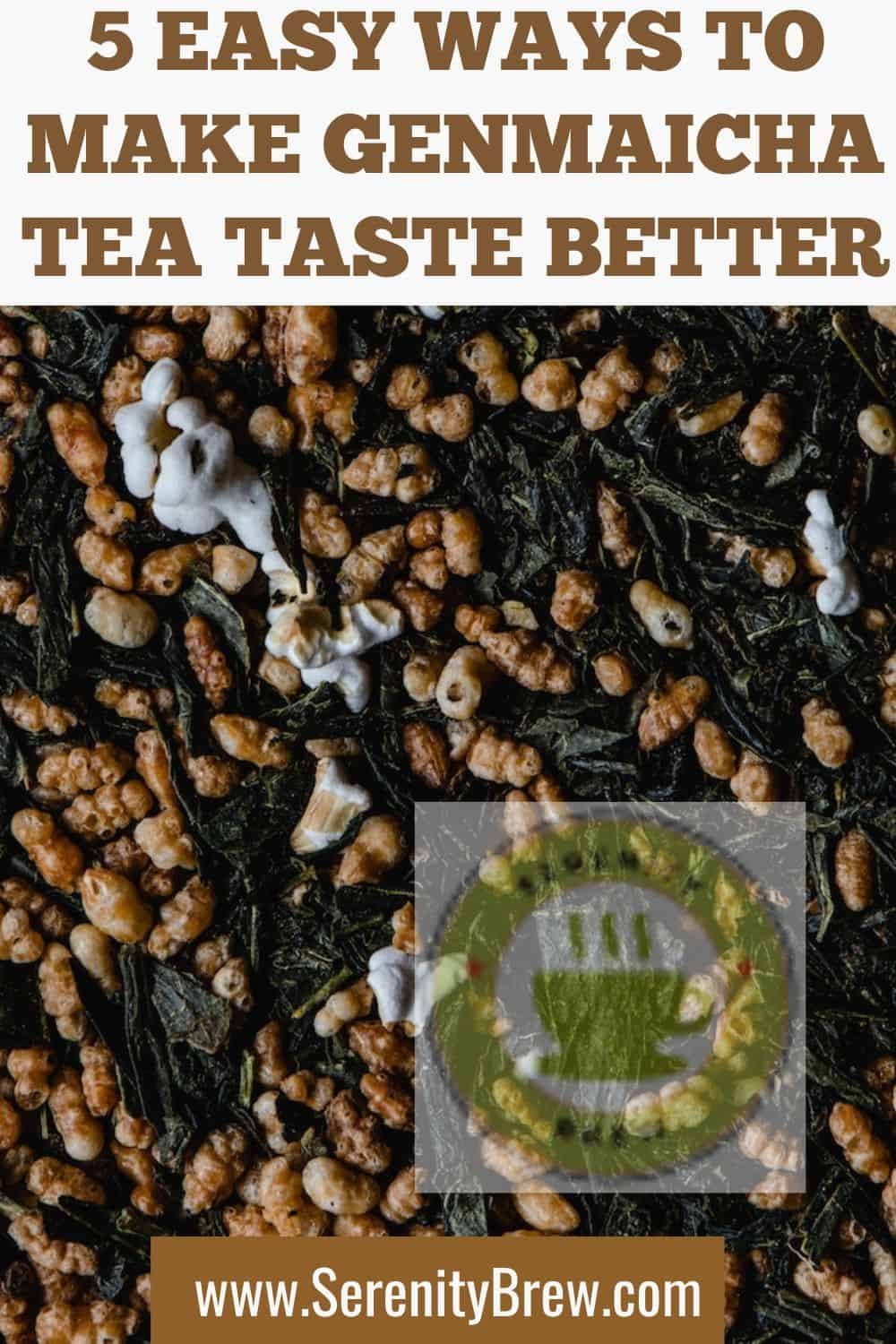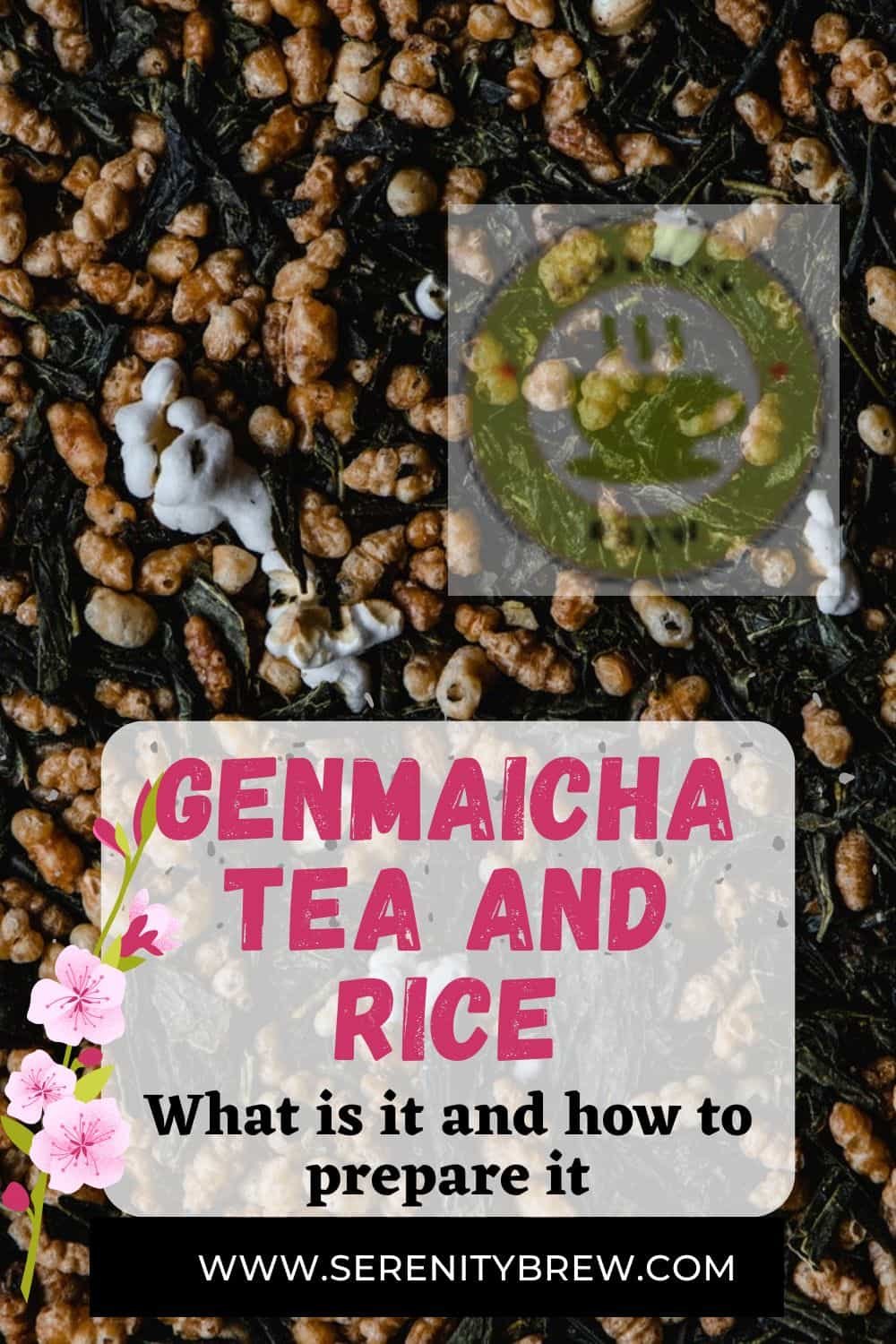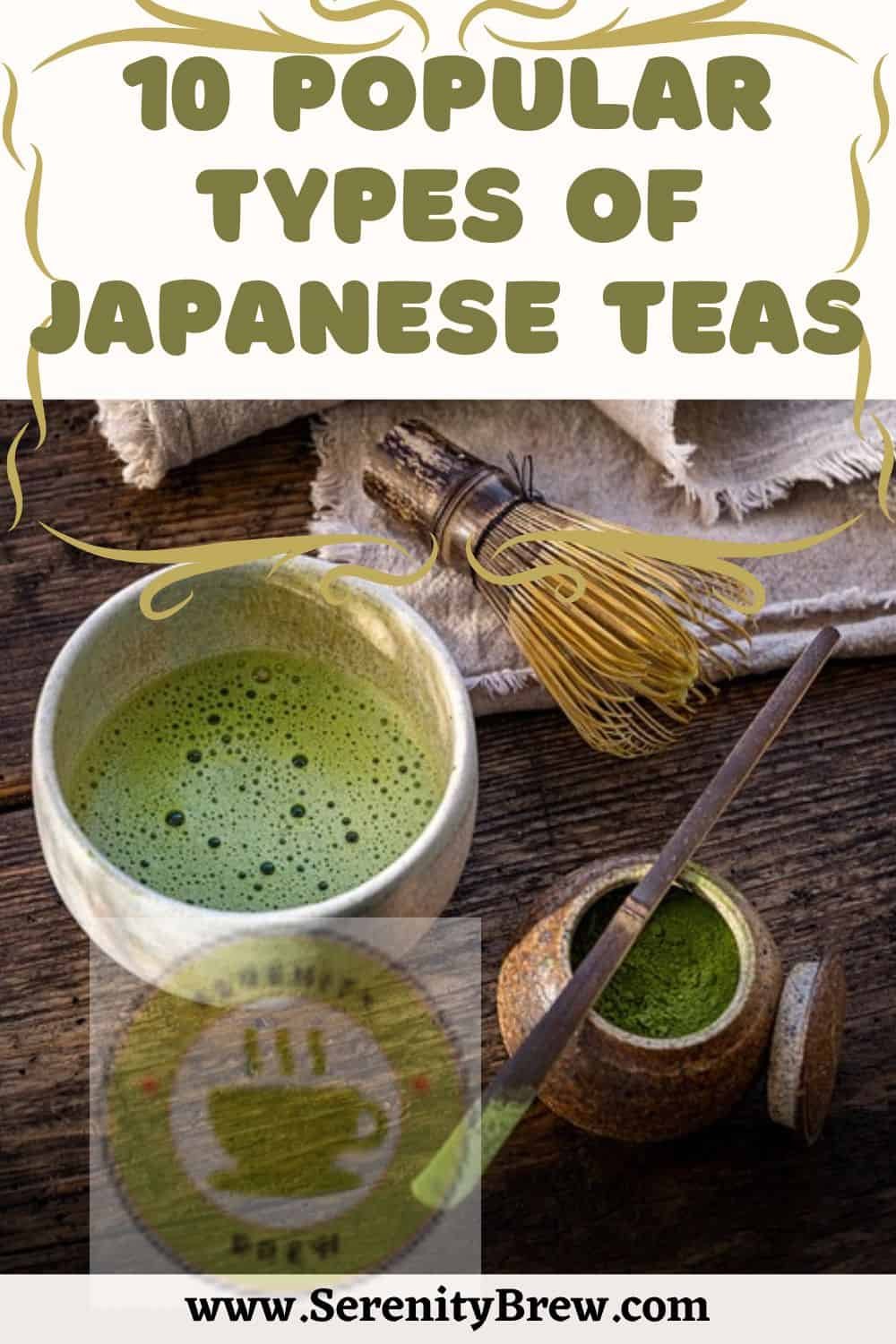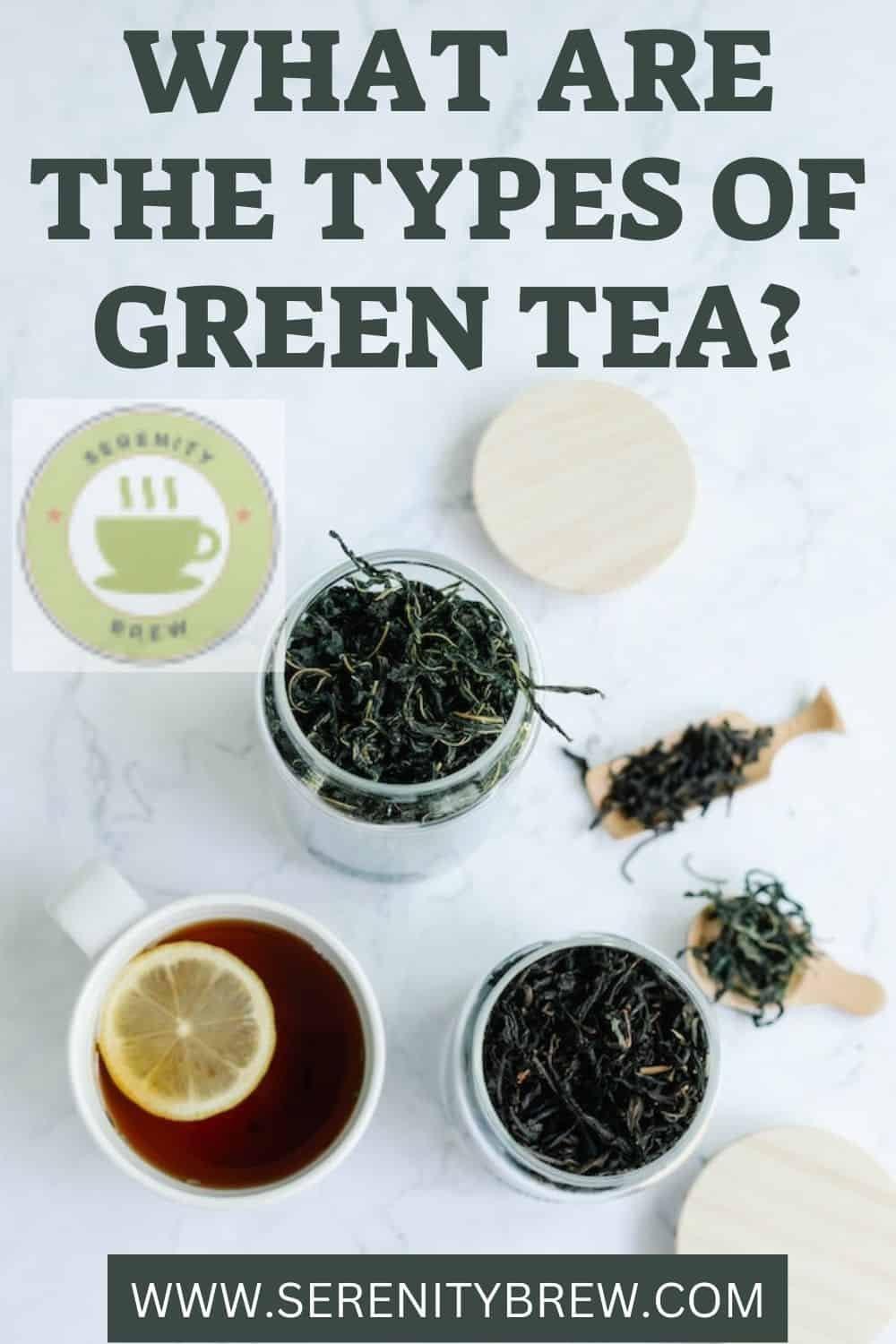Tea Leaves and Brown Rice
Sencha
In preparing Genmaicha, a popular Japanese green tea, Sencha is commonly used as the base tea. Sencha is a high-quality steamed tea, known for its delicate taste and gentle sweetness. When combined with roasted brown rice, it gives Genmaicha its unique flavor profile.
Bancha
Another tea option to create Genmaicha is Bancha. Bancha is similar to Sencha in many ways, but it’s harvested later in the season, making it slightly coarser and more robust in flavor. While not as commonly used as Sencha, Bancha adds its own distinct character to the blend.
Gyokuro
If you’re looking to elevate your Genmaicha, consider Gyokuro as the base tea. Gyokuro is highly prized for its smooth, savory flavor and is often regarded as one of the highest grades of Japanese green teas. While less common in Genmaicha blends, using Gyokuro can create a richer and more complex flavor experience.
Roasting Process
The process of roasting the brown rice adds depth and a nutty, earthy flavor to the tea. To create the perfect Genmaicha, spread a thin layer of brown rice in a medium-sized pan. Toast the rice on low to medium heat until it takes on a dark brown color and releases a nutty, toasted aroma. Allow the rice to cool before brewing.
Types of Rice
Genmaicha traditionally uses brown rice, which provides the earthy, nutty notes that are signature to this tea blend. However, you may encounter variations that include white rice or mochi rice. Mochi rice, in particular, can add a slightly sweeter flavor and a stickier texture to the blend, creating a unique Genmaicha experience.
Genmaicha Varieties
Genmaicha is a unique Japanese tea that combines green tea with roasted brown rice, providing a distinctive flavor. While the most common green tea used in genmaicha is sencha, there are other varieties that combine different types of green tea to create unique flavors and experiences. In this section, you’ll learn about three variations of genmaicha: Matcha Genmaicha, Gyokuro Genmaicha, and Hojicha.
Matcha Genmaicha
Matcha Genmaicha combines the traditional genmaicha blend of roasted brown rice and green tea with the addition of matcha powder. This vibrant green powder is made from finely ground green tea leaves and provides a boost of flavor and richness. When added to genmaicha, matcha powder not only enhances the visual appeal but also adds a creamy, umami taste to the tea. To prepare Matcha Genmaicha:
- Use 1 teaspoon of Genmaicha and 1/2 teaspoon of matcha powder per cup of water
- Heat water to 80-85°C (175-185°F)
- Steep for 1-2 minutes before enjoying
Gyokuro Genmaicha
Gyokuro is considered to be one of the highest-quality green teas in Japan, known for its exceptional flavor and sweetness. By using Gyokuro leaves instead of the more common sencha in genmaicha, Gyokuro Genmaicha offers a more refined and delicate taste. The combination of roasted brown rice and the sweet, umami-rich Gyokuro tea creates a luxurious and truly unique drinking experience. To brew Gyokuro Genmaicha:
- Use 1 teaspoon of Gyokuro Genmaicha per cup of water
- Heat water to 60-70°C (140-160°F)
- Steep for 2-3 minutes before drinking
Hojicha
Hojicha is not a direct variation of genmaicha but rather a distinct type of Japanese green tea that shares some similarities. This tea is made by roasting green tea leaves, which gives it a unique, toasted flavor profile. While it doesn’t contain roasted brown rice like genmaicha, Hojicha offers a similarly warming and comforting taste. To prepare Hojicha:
- Use 1 teaspoon of Hojicha per cup of water
- Heat water to 80-90°C (175-195°F)
- Steep for 45 seconds to 1 minute before enjoying
Frequently Asked Questions
What is the ideal brewing temperature for Genmaicha?
When brewing Genmaicha, it is essential to ensure you use the correct temperature for the best taste. The ideal temperature for brewing this Japanese green tea is around 90°C to 95°C. Using water that is too hot might result in a bitter taste, while water that is too cold may not fully extract the flavors from the leaves.
How long should Genmaicha be steeped?
To prepare a delicious cup of Genmaicha, you should allow it to steep for approximately 3 minutes. This duration enables the flavors from the tea and roasted rice to blend well, giving Genmaicha its unique taste. Be cautious not to over-steep the tea, as this can lead to a bitter taste.
What are the health benefits of Genmaicha tea?
Genmaicha is made using green tea leaves, which contain antioxidants and various nutrients that can promote good health. Some benefits of consuming Genmaicha tea may include improved digestion, weight management, and possibly reduced risk of heart disease and certain types of cancer. However, it is essential to remember that moderation is key, and drinking tea should be part of a balanced diet and lifestyle.
Can Genmaicha tea be enjoyed as a cold brew?
Absolutely! You can enjoy Genmaicha tea as a cold brew. To prepare cold brew Genmaicha, add your tea leaves to cold water and let the mixture steep in the refrigerator for a few hours or overnight. This will allow the flavors to infuse slowly, producing a refreshing and mild beverage that can be enjoyed during the warmer months.
Is it common to add matcha to Genmaicha?
Yes, it is not uncommon to find Genmaicha tea blended with matcha powder. This combination, known as “Matcha-iri Genmaicha,” provides the earthy flavor of Genmaicha with the added health benefits and distinct taste of matcha. Enjoying this blend can be a delightful experience for those who love both Genmaicha and matcha tea.
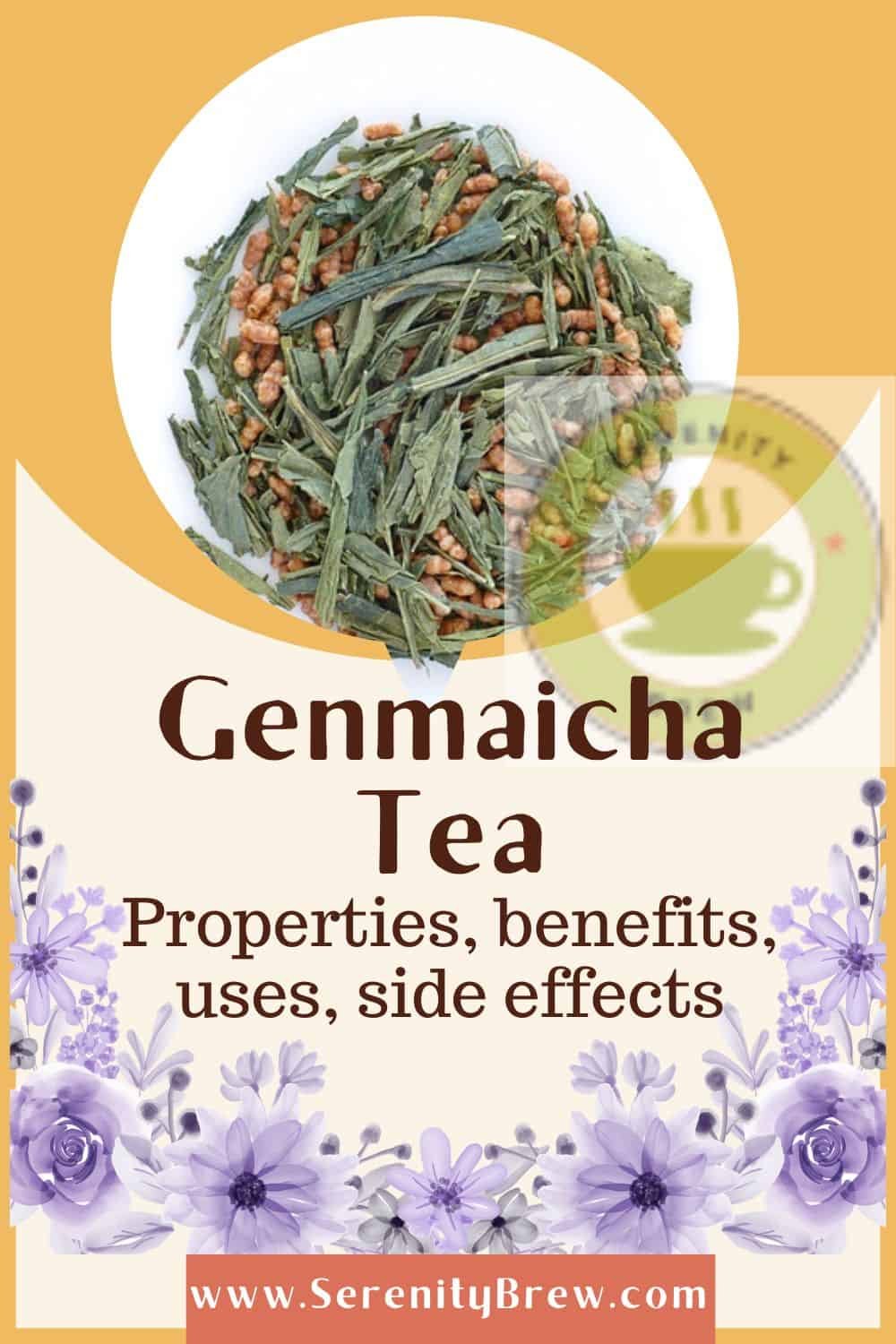 | 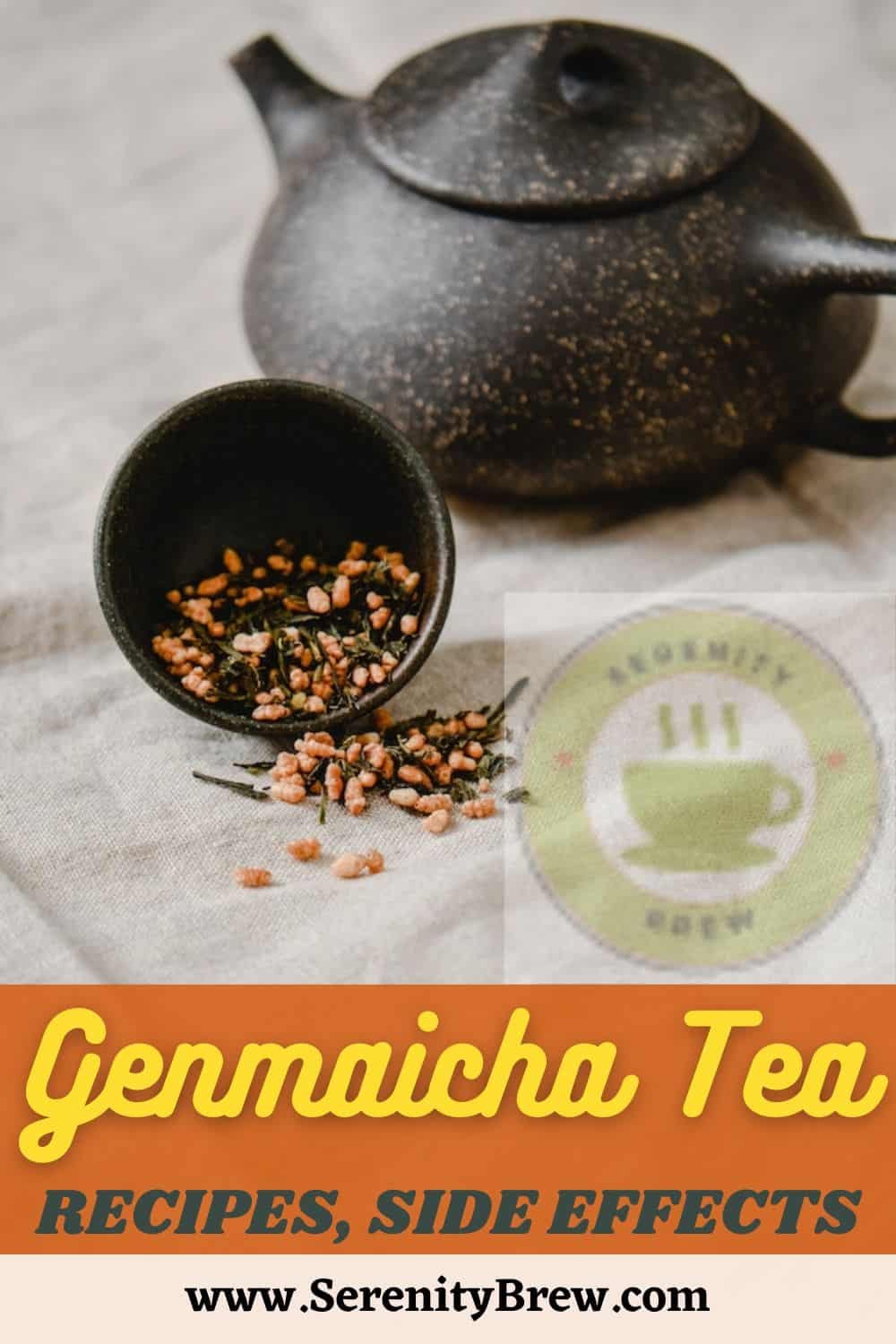 |
| Genmaicha Tea or Popcorn Tea: properties, benefits, uses, side effects | Genmaicha Tea: recipes, side effects |

